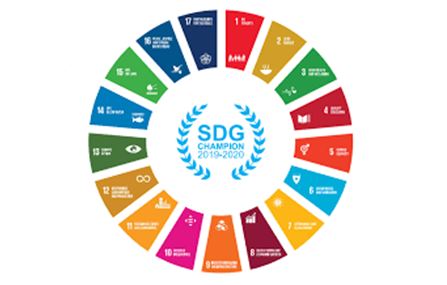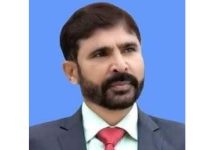By Huma Arshad

The SDGs are an urgent call to the world to shift towards a more sustainable path and approach. In 2015, all member-states of the United Nations including Pakistan adopted the Sustainable Development Goals(SDGs), a global agenda to end poverty, protect the planet, and ensure prosperity for all by 2030. The SDGs are ambitious set of 17 goals, 169 associated targets, and 232 indicators pursued through national action and international cooperation according to the United Nations, 2015.
While the SDGs are not legally binding, governments are expected to take ownership and establish national frameworks to achieve the goals, a challenging prospect given competing government financial and programmatic priorities. The targets have been grouped into three broad themes: people, planet, and prosperity highlighting the UN’s focus on social, environmental, and economic pillars of development.
Pakistan integrated the SDGs into its National Development Agenda NDA in Feb 2016, The government, like other developing countries, faces huge fiscal challenges to meet SDGs.Pakistan was the first country to adopt SDGs 2030 agenda through a unanimous resolution of parliament. The government conducted discussions on post-Millennium Development Goals (MDGs) with all stakeholders for coordinating and strengthening efforts at federal and provincial levels to achieve Pakistan’s sustainable development and poverty reduction targets.
The seven pillars of Vision-2025 are fully aligned with the SDGs, providing a comprehensive long-term strategy for achieving inclusive growth and sustainable development. At the federal level, a SDGs Monitoring and Coordination Unit, in coordination with UNDP, has been being set up to serve as a national coordinating entity with similar units in the provinces.
The focus of the government from the start was on inculcating SDGs in planning processes, ensuring strong monitoring and reporting on SDGs, ensuring public financial allocations are aligned to SDGs and alternate financing modalities are being explored, and to benefit from use of technology to accelerate progress towards SDGs.Pakistan affirmed its commitment to the 2030 Agenda for Sustainable Development by adopting the Sustainable Development Goals (SDGs) as its National Development Agenda through a unanimous National Assembly Resolution.
SDG support units have been established at federal and provincial levels with the planning institutions (Ministry of Planning Development and Special Initiatives and Provincial Planning and Development Departments) to guide SDGs implementation and monitoring it progress. Earlier the Government designed and approved a National SDGs Framework that envisages a national vision to prioritize and localize SDGs. Localized provincial SDG Frameworks are being formulated.
UNDP is supporting the Ministry of Planning, Development & Special Initiatives (MoP&SI), Government of Pakistan for localizing the SDGs by applying UNDG. MAPS approach focusing on mainstreaming SDGs in Plans, Policies and Resource Allocation aligned to 2030 Agenda, SDGs monitoring, reporting and evaluation capacities and strengthenedFinancing flows.
Pakistan, like many other developing countries, has not been able to meet the United Nations Millennium Development Goals of 2015, largely because of weak institutions and a lack of policy enforcement. SDGs are not moving forward and we do not see much progress due to frequent changes in the government sector. Pakistan still ranked 129th out of 165 countries in a recent Sustainable Development Goal Index ranking, Population growth remain the major obstacle in achieving goals. Energy crisis, education reforms are still needs lot of changes and immediate attention.
Here we cannot forget or overlook that Pakistan has the highest rate of urbanization in South Asia. All the political parties, government has to take serious measures to attain the goals by 2030. Several challenges remain to achieve the SDGs in Pakistan. Financing the SDGs in a slow-growth economic environment is a difficult task. There is also a knowledge and technology gap in developing local solutions and improved governance. The path towards sustainable development is not easy if a country is acting alone.
In the case of Pakistan, development has been hampered by fluctuating levels of foreign investment, trade, and development assistance over the years. As long as global partnerships are not encouraged worldwide, the prospects for the development of SDGs remains weak.
This global partnership must have different elements, such as development assistance aid, debt relief, trade agreements, and foreign funding. If Pakistan is to achieve its SDGs, it has to pay extra focus on building robust partnerships which priorities integration through cooperation. Lastly, Pakistan needs strong institutions which can transform the current business trajectory of the country.As a country we must remember the motto of United Nations for achieving the Sustainable Development Goals ( SDGs ) i.e. “LEAVE NO ONE BEHIND”— the motto is the guiding principlein solving the most pressing problems of today.
“We will only secure a prosperous, peaceful and livable planet if we harness economic growth and development to social solidarity across and between generations.”― Oscar Auliq-Ice (humanist, Philosopher )

















